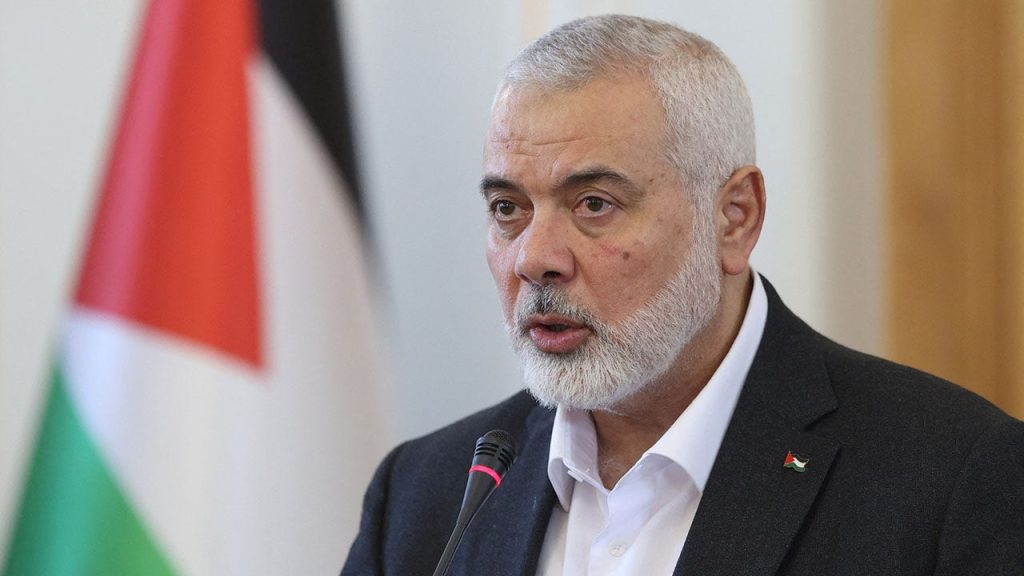Israel’s military confirmed that an airstrike in the Gaza Strip had killed three of Hamas leader Ismail Haniyeh’s sons. The three men killed were identified as Amir Haniyeh, a Hamas military wing cell commander, Mohammad Haniyeh, a Hamas military operative, and Hazem Haniyeh, also a Hamas military operative who had conducted terrorist activity in central Gaza. Ismail Haniyeh, living in exile in Qatar, condemned the airstrikes as cruel and believed they were an attempt to force Hamas to change its stance. The strike happened after Iran’s leader threatened to take action against Israel and criticized the US and the West for their involvement in the region.
Haniyeh’s sons were killed near the Shati refugee camp in Gaza City, according to reports from Hamas’ Al-Aqsa TV station. The news of their deaths was shown on TV as Haniyeh received the news while visiting wounded Palestinians in Qatar. The footage showed Haniyeh nodding and looking down in shock before leaving the room. He denounced Israel’s vengeful tactics, stating that targeting the families of leaders will not force Hamas to change its positions. The strike occurred shortly after Iran’s Supreme Leader, Ayatollah Ali Khamenei, threatened to retaliate against Israel for an airstrike that demolished Iran’s consulate in Syria, killing several Iranian generals.
Iran’s leader, speaking at a prayer ceremony, vowed to punish Israel for the airstrike and criticized the US and the West for their involvement in the region. Khamenei described the airstrike on the Iranian consulate as a wrongdoing and likened it to an attack on Iran itself. The tensions in the Middle East following these incidents have raised concerns among Democratic senators about Israel’s war status, especially as President Biden tries to navigate a challenging balance with progressives. The continuous conflict between Israel and Hamas, exacerbated by external threats and involvement, has further complicated the situation.
The airstrikes targeting Hamas leader Ismail Haniyeh’s sons have triggered condemnation and outrage from the Hamas leadership and their supporters. Ismail Haniyeh called Israel’s actions criminal and driven by revenge, with no regard for moral standards. The targeted killing of prominent figures in Hamas, such as Haniyeh’s sons, has intensified the conflict between Israel and Hamas, with both sides engaging in retaliatory actions. The involvement of Iran, with its threats against Israel, has added another layer of complexity to the situation, further fueling tensions in the region. The escalation of violence and hostile rhetoric from all sides threatens to prolong the conflict and deepen the suffering of innocent civilians caught in the crossfire.
The killing of Hamas leader Ismail Haniyeh’s sons in an Israeli airstrike has sparked a fresh wave of violence and retribution in the volatile Gaza Strip. The Hamas leadership has vowed to retaliate against Israel, accusing them of targeting innocent civilians and engaging in acts of terrorism. The continued cycle of violence and bloodshed between Israel and Hamas, exacerbated by external influences such as Iran’s threats, poses a significant challenge to any efforts to achieve peace and stability in the region. The international community, including the US and other western powers, must work towards de-escalating tensions and finding a diplomatic resolution to the conflict to prevent further loss of life and suffering among the civilian population in Gaza and Israel.


